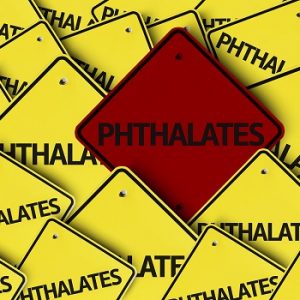
More evidence that low-calorie sweeteners are bad for your health
Studies show that artificial sweeteners can raise the risk of hypertension, metabolic syndrome, type 2 diabetes and heart disease, including stroke.

Natural Health News — We all know that phthalates – those plasticisers which are used in food packaging, toys and even cosmetics, are hormone disrupting and therefore bad for our health. This is why increasingly they are either banned or manufacturers are scrambling to find substitutes.
But guess what? Phthalates written on multiple road sign, according to new data.
A new series of studies from the US, has found that two chemicals increasingly used as substitutes for di-2-ethylhexylphlatate, or DEHP – considered the most harmful phthalate to human health – can be linked to a rise in risk of high blood pressure and diabetes in children and adolescents.
The compounds, di-isononyl phthalate (DINP) and di-isodecyl phthalate (DIDP), are both during manufacturing to strengthen plastic wrap, soap, cosmetics, and processed food containers
Ironically both substances are also phthalates and now the data is showing they too are harmful.
“Our research adds to growing concerns that environmental chemicals might be independent contributors to insulin resistance, elevated blood pressure and other metabolic disorders,” says study lead investigator Leonardo Trasande, MD, MPP, a professor at NYU Langone.
» di-2-ethylhexylphlatate, or DEHP is a plasticiser used in food packaging, toys and even cosmetics which has been associated with hormone disruption.
» DEHP has been subject to bans and some manufacturers have sought to replace it with safer substances.
» New research shows that the substitutes, which are also phthalates are not actually safer.
The series of studies are believed to be the first to examine potential health risks from DEHP replacements.
Raising blood pressure and insulin resistance
In the most recent one, published in the journal Hypertension , the scientists report a “significant association” between high blood pressure and the presence of DINP and DIDP levels in adolescents aged 12-19. Blood and urine samples were collected once between 2008 and 2012, from a diverse group of children and adolescents aged 12 to 19 and were measured and evaluated for phthalates and glucose based on their urinary levels of these substances.
Specifically, they say, for every tenfold increase in the amount of phthalates consumed, there was a 1.1mmHg (millimetres of mercury) increase in blood pressure.
In the earlier study, published in May in the Journal of Clinical Endocrinology and Metabolism, the same NYU investigators found an association between DINP and DIDP concentrations and increased insulin resistance, a precursor to diabetes in children aged 12-19 years. One in three adolescents with the highest DINP levels had the highest insulin resistance, while for those with the lowest concentrations of the chemicals, only one in four had insulin resistance.
Poor regulation
DEHP, the original chemical used as a plasticiser, was banned in 2004 in Europe after researchers elsewhere found a link between exposure to the plasticiser and detrimental effects on human health.
In the United States, manufacturers voluntarily began to replace DEHP with DINP and DIDP over the last decade. Trasande’s own research in 2013 confirmed the link between DEHP exposure and hypertension in Americans.
“Alternatives to DIDP and DINP include wax paper and aluminium wrap; indeed, a dietary intervention that introduced fresh foods that were not canned or packaged in plastic reduced phthalate metabolites substantially,” says Trasande.
“Our study adds further concern for the need to test chemicals for toxicity prior to their broad and widespread use, which is not required under current federal law (the 1976 Toxic Substances Control Act),” he says.
Avoiding phthalates
There are “safe and simple” steps families can take to limit exposure to phthalates.
These include not microwaving food in plastic containers or covered by plastic wrap, and washing plastic food containers by hand instead of putting them in the dishwasher, where harsh chemicals can lead to increased leaching of plasticisers into food. People can also avoid using plastic containers labelled on the bottom with the numbers 3, 6 or 7 (inside the recycle symbol), in which chemicals such as phthalates are used.
Trasande says his team now plans to study the long-term effects of exposure to these chemicals, in particular during pregnancy and early childhood, which might reveal different and/or more persistent effects on health.

Please subscribe me to your newsletter mailing list. I have read the
privacy statement